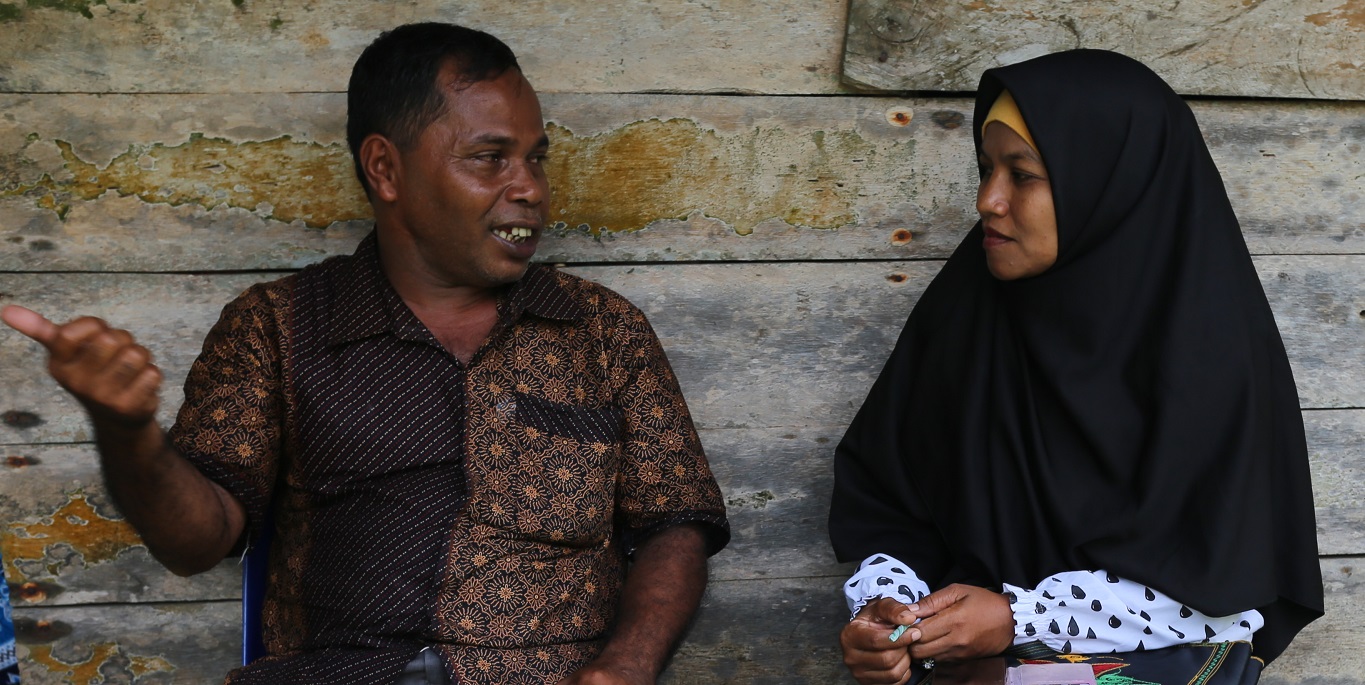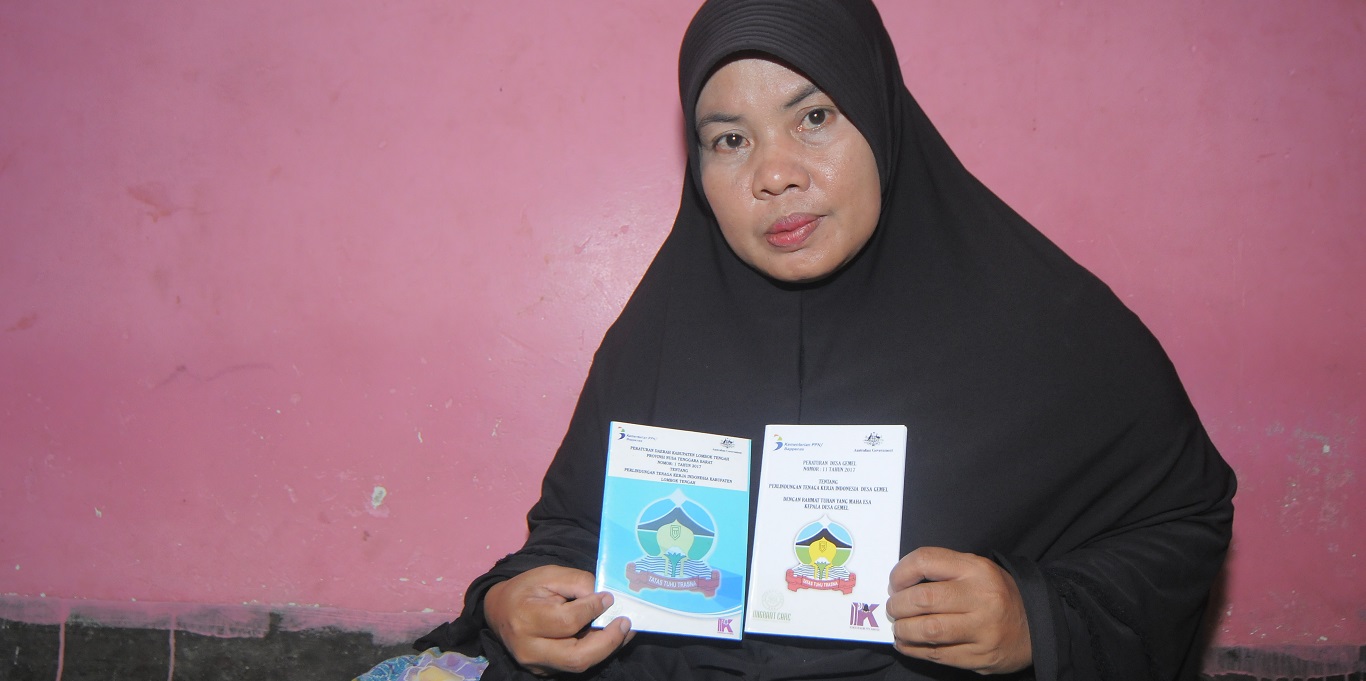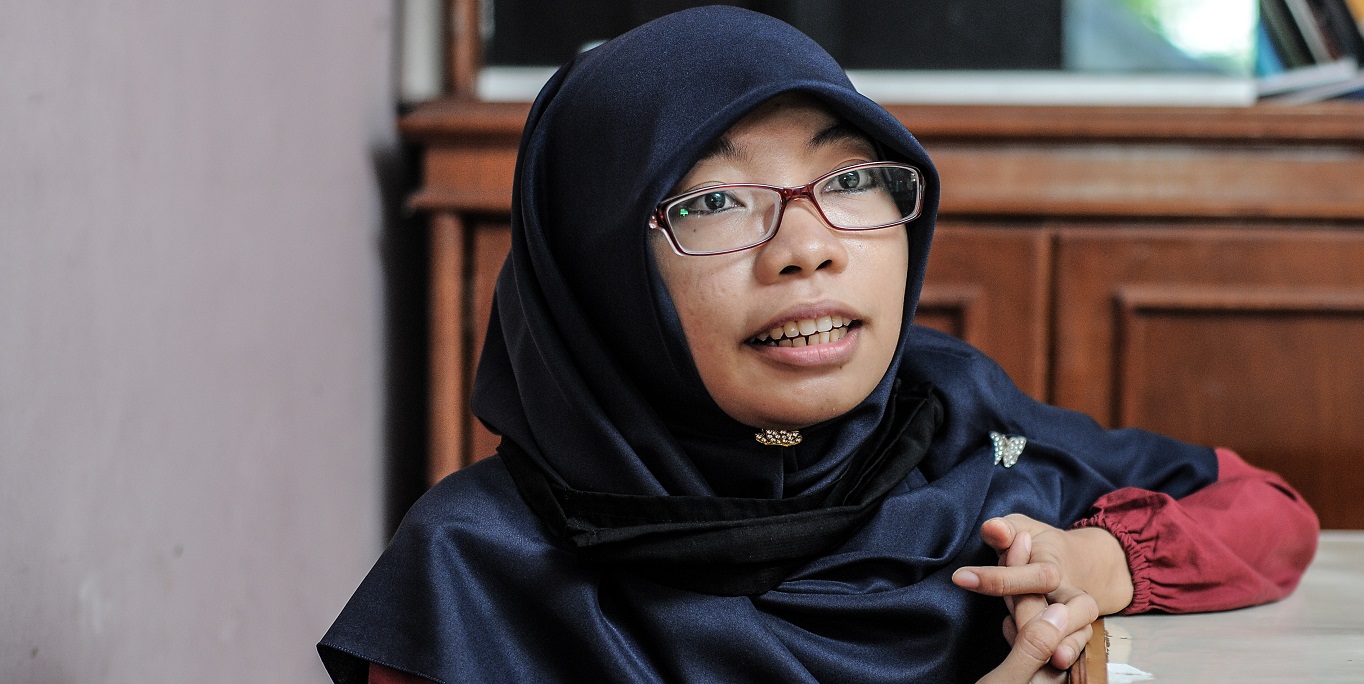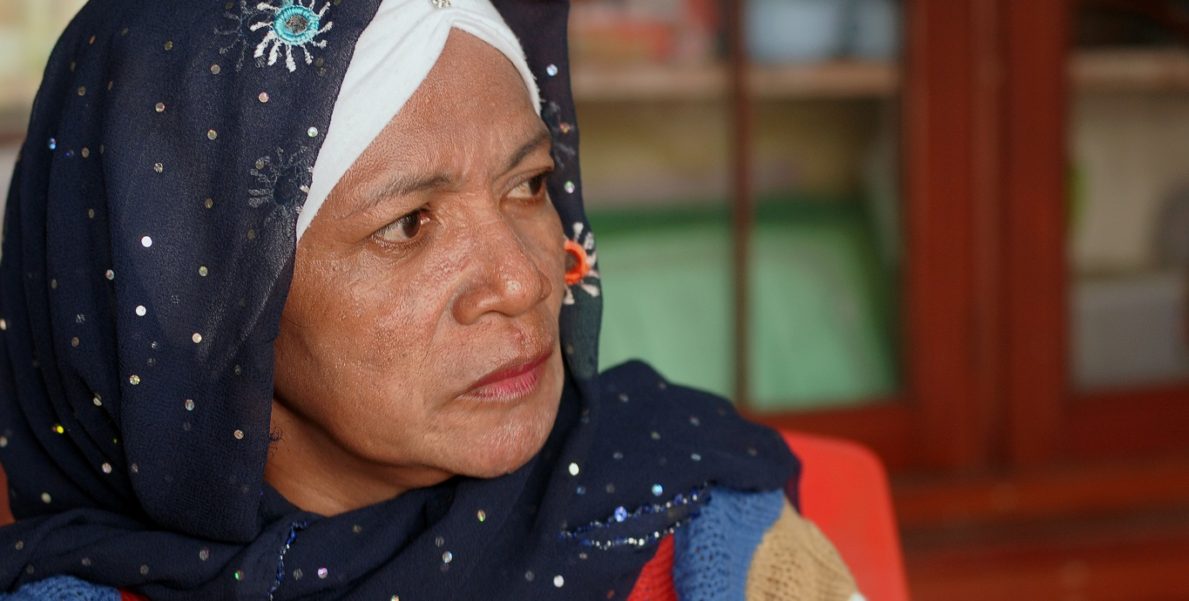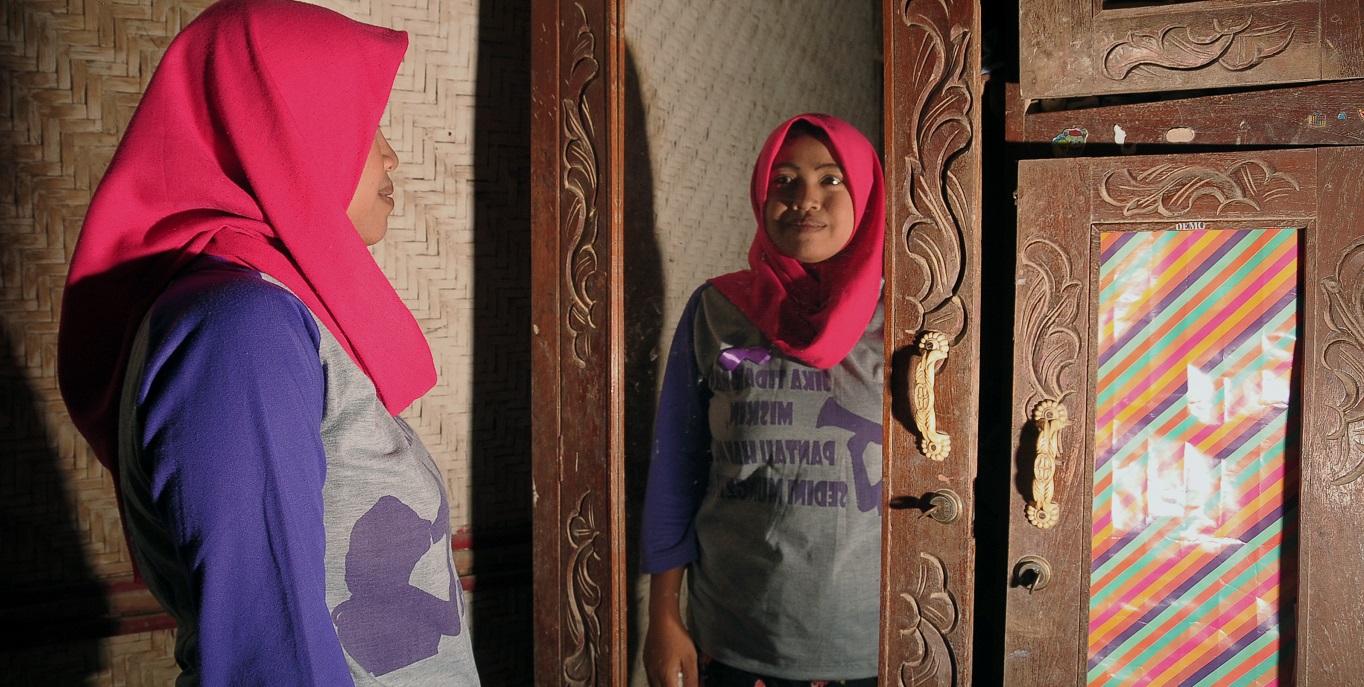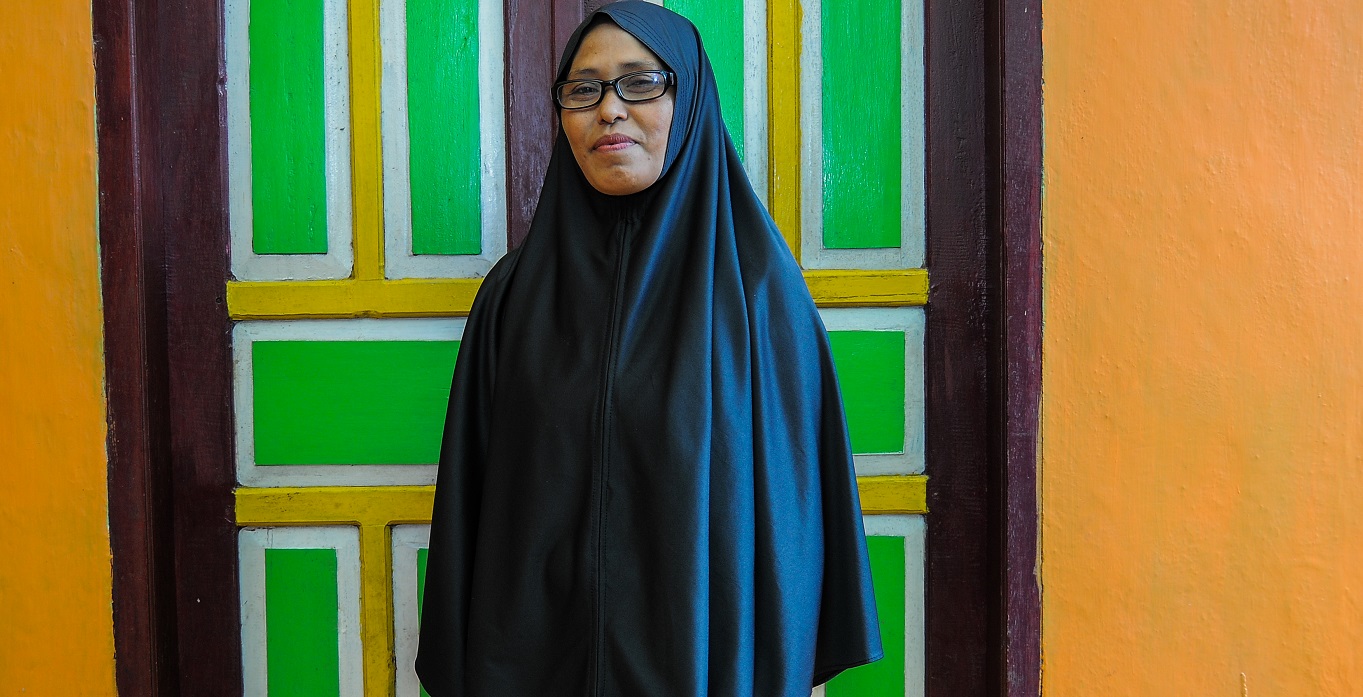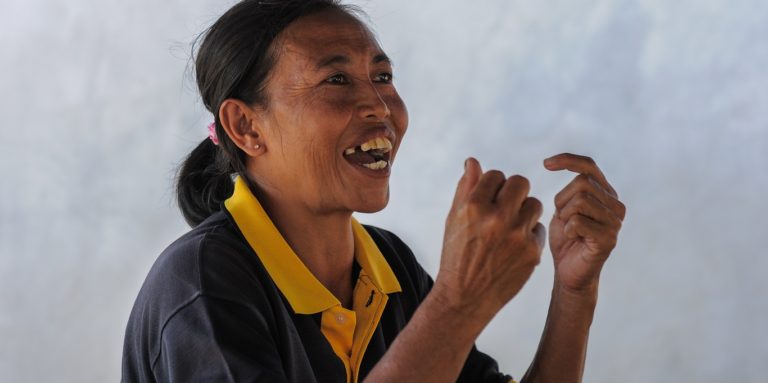Stories
A Homeworker to Gain Salary Increase, Thanks to BITRA Training
30 December 2015Penulis: admin
September 2014 was a monumental, unforgettable month for Juliani, a 31-year-old home worker from Deli Serdang, North Sumatra. For the first time, she and several other home workers plucked up the courage to demand a raise. These home workers had started to work together to improve their working conditions.
Juliani is now a different woman. Three months ago, she did not even know that what she had been doing for eight years in her home was a category of employment called home work. The term homeworker refers to industrial outworkers who carry out paid work in their houses, for firms/businesses or their intermediaries, typically on a piece-rate basis. Because home work is performed within the home, and often in isolation from other workers and the local community, it tends to be invisible to the public eye despite its contribution to the economy.
Juliani has been sewing baby seats at home for a nearby company, receiving IDR 7,000 (AUD 70c) per dozen. The company provides the necessary materials (fabric, foam and fringes fabric), and in addition to the sewing machine, she prepares her own equipment like needles, yarn and scissors. On average, she can sew up to seven dozen baby seats per day, obtaining a monthly income ranging from IDR 400,000 (AUD$ 40) to 1,500,000 (AUD$ 150) depending on the orders. Her income has made a significant contribution to her household income in addition to that of her husband Sudiono. He works as a casual construction worker and receives between IDR 600,000 (AUD$ 60) and IDR 2,000,000 (AUD$ 200) per month.
“I never had the courage to talk to my employer about my problems before. But I feel I have more knowledge and courage now thanks to the trainings I received from BITRA,” she said.
BITRA Foundation, one of MAMPU partners, said that home workers, who are mostly women, are particularly vulnerable because they are lacking in adequate legal protection and working in isolation with weak bargaining power. They are engaged through informal arrangements without written contracts, often receiving less than the minimum wage, working very long hours, and having no job security. The use of certain equipment and materials which may be hazardous can expose not only the worker but also family members, including children, to various safety and health risks.
Since joining the various activities organised by BITRA, Juliani has actively participated in them. She learned about numerous things including her rights as a worker, relevant labour laws, gender equality, social protection and how to communicate and negotiate better.
“At the beginning, I was so overwhelmed and afraid of losing my job, I even thought of leaving the organisation. But my mentors persuaded me to stay and continue improving myself.”
With more knowledge about their rights as workers, Juliani and her fellow workers felt confident enough to approach their employers to demand a raise.
“The middlemen, as the representatives of the company, were upset with our demand. They did not want to discuss it,” said Juliani.
However, she refused to give up. She then personally approached the middlemen again and talked it over in a sensible manner, explaining that the raise demanded was to cover the increased costs of transportation and materials.
“Applying what I have learned from the trainings, I asked them to consider our demand since we had never asked for a raise,” she added. In the end, her courage yielded a result. She was told that the company would increase the rate to IDR 8,000 (AUD 80c) per dozen, not only for her but also for all members of her group.
“We were all so excited with this good news.”
Juliani is now a changed woman. She is inspired to be strong, smart and brave. She also sets up personal goals to continuously strengthen her skills, increase her income, and improve her working conditions. She even talks to her husband about equality and how she appreciates her husband’s contribution to the housework and her contribution to their household’s economy.
“Moving forward is my current life principle,” stated Juliani.
Documented by Novita Hendrina (ex ILO-MAMPU)
Deli Serdang, North Sumatera



